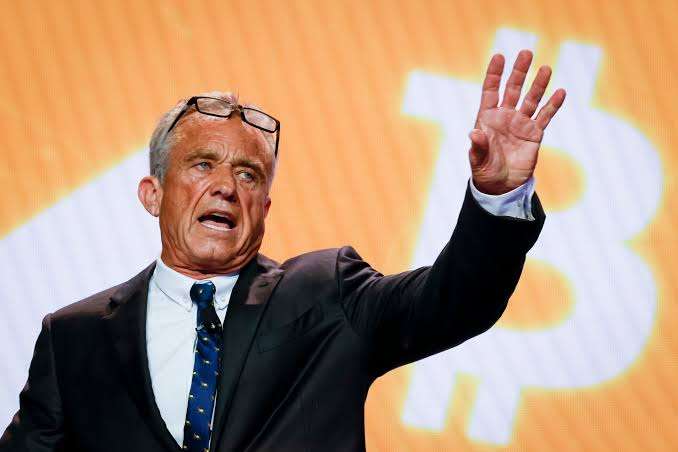RFK Jr. opposes central bank digital currencies, warning of their potential for surveillance and control over financial transactions.
Robert F. Kennedy Jr. (RFK Jr.), a Democratic candidate for president of the United States, reaffirmed his support for cryptocurrencies on Thursday via the social media platform X. RFK Jr. is the nephew of former U.S. President John F. Kennedy and the son of former U.S. Attorney General and Senator Robert F. Kennedy.
Kennedy wrote with emphasis, “Cryptocurrency is the exit pathway from our addiction to the Federal Reserve.”
He continued, “If you concur that crypto = liberty, assist me in advancing that vision as president.”
RFK Jr. has been an ardent supporter of cryptocurrencies and bitcoin for many years, purchasing some for his children the year prior and retaining his own.
Recently, he emphasized that Bitcoin functions as an exit from the “money printing mechanism” of central banks, thereby emphasizing its classification as a “hard currency.”
Furthermore, he underscored the importance of transactional freedom, drawing a parallel between it and freedom of expression and asserting that Bitcoin offers this freedom exclusively.
The presidential candidate declared in October of the previous year that, should he be elected President of the United States, he would implement measures to safeguard cryptocurrency.
“I am committed to safeguarding Bitcoin, allowing individuals to retain their accounts, putting an end to the ongoing White House campaign against the cryptocurrency, and encouraging secure transactions,” he declared.
Moreover, he disclosed a plan to leverage Bitcoin to support the U.S. dollar in July last year.
Additionally, Roosevelt opposed central bank digital currencies (CBDCs). If elected, he and former U.S. President Donald Trump have pledged to oppose the Federal Reserve’s decision to issue a digital dollar.
RFK Jr. Opposition to Central Bank Digital Currencies
RFK Jr. has cautioned, “We should be skeptical because CBDCs are the pinnacle of social surveillance and control mechanisms.”
Although cash transactions maintain anonymity, implementing a CBDC would grant the government access to our private financial matters.
“The central bank will possess the authority to levy dollar limits on our transactions, dictating restrictions on the destinations of money transfers, expenditures, and the expiration dates.”












